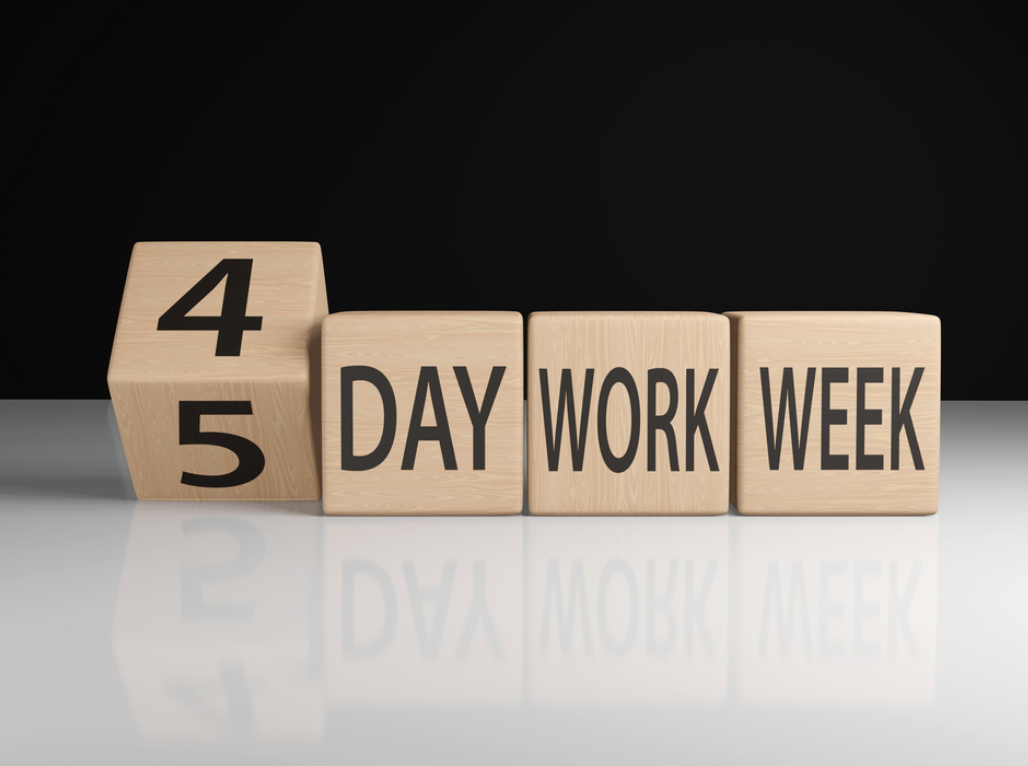4 ways to overcome your email addiction

Recent posts

From Firefighting to Innovating: 4 Strategies to Carve Out Space for Creativity
Zoe Aitken • 29 August 2024

COORDINARE’s Four-Day Week Success: 3 Powerful Lessons You Need to Know
Charlotte Rush • 29 August 2024

Everything I thought I knew about Work was Wrong: My Eye-Opening CEO Journey
Tina McIntosh • 1 August 2024
Are you handcuffed to your phone, constantly on alert for the next message? It might be time for email rehab. You’d be surprised how much more you can achieve when you’re not responding to every ‘ping’.
Six minutes. This is the amount of time people can stay focused on a task before succumbing to the lure of email or messaging apps, according to research by Rescue Time.
After analysing 185 million working hours’ worth of data, the research revealed that people check email or instant messenger every six minutes, on average.
And things didn’t get any better during Covid. In fact, they got worse.
According to research from Microsoft, there has been a barrage of email and other digital interruptions. In February 2021, the average Microsoft Teams user was sending 45% more chat messages per week compared with February 2020, and over 40 billion more emails were sent in February 2021 compared to February 2020.
And even though people are on the receiving end of more messages, 50% of people surveyed by Microsoft respond to MS Team chat messages within five minutes or less. So it’s probably no wonder that 54% of people felt overworked and 39% felt exhausted.
If you can relate, here are four ways to tame your inbox and its contribution to your stress levels and exhaustion at work.
Give yourself “Freedom”
Instead of relying on willpower to stay out of your inbox, give yourself Freedom. Freedom allows you to block yourself from accessing certain websites and applications, or if you are game, the entire internet. You simply decide when you want to get deep, focused work done, and Freedom blocks you out of all potential distractions.
I’ve found for myself that while my willpower is strong in the morning and I can generally avoid digital distractions, afternoons were much harder. After using Freedom to lock myself out of Gmail and other distracting and addictive websites between 1-4pm every day, I was able to be far more productive in my afternoons.
And if you think you might end up wanting to simply hack the system, you can use “Locked Mode” which literally makes it impossible for you to switch off a Freedom session prematurely.
Set yourself a focus goal
Let’s face it – email can be a fun distraction. Dipping into our inbox can provide dopamine hits when good news emails come through and working our way through countless messages can give us a false sense of productivity. As a result, when we feel stuck on a task, our email can provide relief by making us feel productive and relieving our feeling of being ‘stuck’.
Rather than immediately succumb to the siren song of email, try setting yourself a ‘focus goal. Make a deal with yourself where if you stay focused on work for an hour (or even just ten more minutes), you’ll give yourself permission to dip into your inbox as your reward.
Boost your energy through taking the “right” kind of breaks
We tend to procrastinate more when our energy levels are low. And our email is a great tool for procrastination from tasks that feel hard and require our undivided attention. As such, kick your email procrastination habit through boosting energy through taking regular breaks.
Psychologists have uncovered that there are ideal conditions for taking effective breaks. For example, research from the University of Colorado has shown that in contrast to one 30-minute break or no breaks at all, hourly five-minute walking breaks boost energy, sharpen focus, improve mood and reduce feelings of fatigue in the afternoon more effectively.
Delete email from your phone
When we are waiting in a queue or simply feeling a bit bored, having a quick check of email on our phone can be so easy – yet unnecessary – to do.
To remove the urge to do the ‘just check’ of email on your phone, we need to break the habit. One reason habits form is because the behaviour is easy to do. As such, one way to break a habit is to make the behaviour harder to do.
When it comes to checking email, if your email app is front and centre on your phone’s home screen, it’s easy to make email the first thing you check when you pick up your phone. But if you delete the email app from your phone, checking it on impulse becomes a whole lot harder.
If you are serious about kicking your email habit, delete it from your phone. If this idea feels overwhelming, try this strategy for just one week and see how your behaviour changes. If your work life falls apart without having email on your phone, feel free to reinstall it. But you might find things get a lot better. Try out any or all of these strategies and you’ll be well on the way to kicking your email habit.